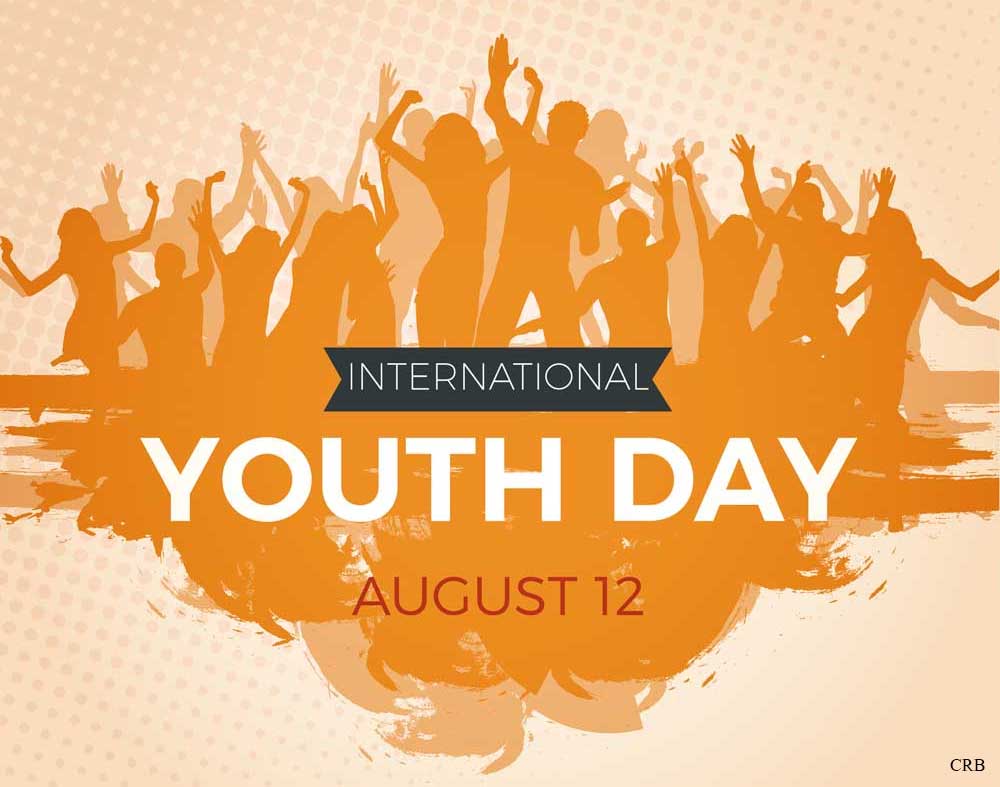Dr. N. Munal Meitei
Environmentalist, email- nmunall@yahoo.in

International Youth Day is organised on 12 August since 2000 to celebrate the contribution that the youth make in education, employment, conflict resolution, social justice and environmental protection. The theme for this year is, “From Clicks to Progress: Youth Digital Pathways for Sustainable Development.” This theme highlights the key connection between digitalization and accelerating the progress of the Sustainable Development Goals (SDGs), emphasizing the crucial contributions of the youth in transforming the changes.
Digitalization is one of the six key transitions with catalytic and multiplier effects, transforming the world, offering unprecedented opportunities to accelerate sustainable development. Technologies like mobile services, digital platforms, data collection and emerging innovations such as artificial intelligence play a crucial role in advancing the profound impact on economic, social and environmental dimensions. Digital technologies contribute at least 70% of the 169 SDG targets while potentially reducing the cost of achieving these goals by up to Rs. 4587 trillion.
Youth, the largest group of users and developers shaping digital trends globally are leading in-charge in digital adoption and innovation, with three-quarters of those aged 15-24 using the internet in 2022, a rate higher than other age groups. However, disparities persist, particularly in low-income countries and among young women, who often have less access to the internet and digital skills compared to their male counterparts. While there is an urgent need to enhance digital inclusion, youth are largely recognized as ‘digital natives,’ using technology to drive change and create solutions. As the 2030 deadline for the SDGs approaches, youth remain an essential demographic group in leveraging the transformative power of technologies to address global challenges.
Youth are at the centre-point in achieving a more sustainable and healthier planet. Meaningful and effective inclusion of youth in environmental action and decision is imperative as they represent a big part in demography and disproportionately bear the consequences of the triple planetary crisis. The youth also can bring a long term environmental impact.
As we saw in the past, there are many more rules, laws, conventions meant for protecting the environment but there is no effective implementation. So, the youth needs to play a vital role in the implementation. Youth represent 1.2 billion of the world’s population and they will have to live longer to deal with the consequences of environmental issues bequeathed to them by earlier generations.
Youth can play an active role in protecting and improving the environment by changing their lifestyle that affects the environment. They can make their homes, schools and surroundings by adopting environmentally friendly practices. Engaging youth in environmental protection not only creates a direct impact on changing their behaviors and attitudes, but possibly influences their parents, relatives and society.
Youth are the backbone of the nation for the present and future. They can change community with their wellbeing and courageous behavior. Unfortunately, today we find the youth choosing to spend most of their valuable time playing video games, Whatsapps, Facebook and other unwanted things. But by applying for the greening knowledge at home and schools, they have efficacy to make the country a beautiful place. They also can arrange seminars, training sessions, discussions, debates, fundraising and the distribution of educational awards/materials to student and among themselves to increase environmental awareness.
In politics, youth can have luscious influence to the general public and calling the politicians to account for long-term environmental decisions. Environmental education is one way of equipping youth with the necessary cognitive skills to recognize and withstand the growing pressures of the environmental problems. However, not only the kind of education that provide information on how the world’s ecosystems are under stress but to find the solutions also. Youth are now lived in an era loomed with maximum environmental issues.
Youth have special worries and responsibilities towards the environment as they faced its risks and dangers disproportionately and they are yet to face the huge deterioration from previous generations. Thus, youth get evolved as an activism to give an efficient answer to the arising environmental challengers. More than ever before, there is a need to start early by imparting awareness and a sense of environmental stewardship among the youth of today and future generations.
Youth around the globe are seizing the opportunity to adopt both conventional and unconventional methods to share with family and community to protect the environment. Youth are using their collective voice to advocate, lobby and lead campaigns towards adopting environmentally-friendly practices and policies. Youth efforts range from local initiatives to international campaigns and some are influential enough to reach the global platforms.
Thus, youth participation in supporting and engagement in environmental preservation requires a holistic and inclusive approach. Youth are to take the lead role to protect the environment at the local, national and global level. However, to harness their talents and innovations, there is a need to ensure that the youth are torchbearers and equal partners in creating and implementing the goals toward the environmental sustainability.













